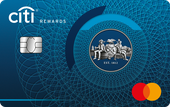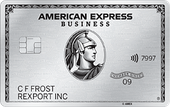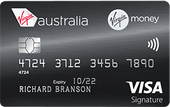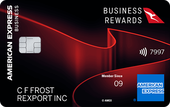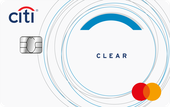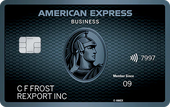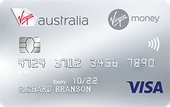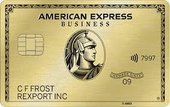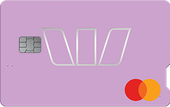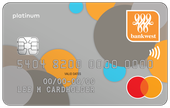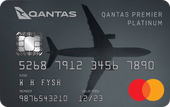
Should you use a business or personal credit card if you're self-employed?
Self-employed Australians often face unique financial challenges that set them apart from traditional 9-to-5 employees. Separation of business and personal finances is a problem faced by many self-employed gig workers, consultants and contractors.
It's essential to compare the available cards to ensure you select the best credit card that suits your financial situation.
Business credit cards
- If you have a registered business, a business credit card offers benefits such as expense tracking tools, business-specific rewards, accounting software integration, and higher credit limits tailored to company expenses.
- These cards can help separate personal and business finances, simplifying tax reporting and financial management.
Personal credit cards
- Personal credit cards that offer business-related perks, such as rewards for business spending or travel benefits, can be suitable for self-employed individuals with lower transaction volumes who may not qualify for business credit cards.
- These cards provide a convenient way to access credit while enjoying benefits that align with entrepreneurial pursuits.
- Personal credit cards can help individuals build their credit profile so they can apply for a business credit card at a later stage in their business.

Credit Card Compare expert on choosing between a business or personal credit card

Credit Card Compare co-founder Andrew Boyd explains the difference between choosing a business or personal card:
"Running your own gig in Australia often means wearing multiple hats, and your credit card should keep up. Early on, a personal card might do the trick, especially if your income’s a bit up-and-down. But as your workload grows, a business credit card can be a game-changer. It helps you track expenses for that inevitable BAS statement, lets you earn points on business-specific purchases—like tradie tools or software—and can even offer cashflow flexibility with longer interest-free periods. Just watch out for annual fees that might sneak up on you.'"

What to consider for self-employed individuals
Variable income
Self-employed individuals may experience fluctuating income levels, necessitating a credit card with flexible payment options.
Expense tracking
Access to detailed transaction records and expense categorisation features can streamline accounting processes for self-employed individuals.
Tax efficiency
Credit cards that offer rewards or benefits tailored to business expenses can help self-employed individuals maximise tax deductions.
Credit building
Building a strong credit profile is essential for self-employed individuals to access financing options and secure favourable terms in the future.

How to apply for a credit card when you are self-employed
The eligibility criteria and application process for credit cards tailored to self-employed individuals may vary based on the card provider and individual circumstances. Understanding the requirements and steps involved in applying for a credit card can streamline the process and enhance your chances of approval.
Eligibility criteria
Proof of income
Self-employed individuals may need to provide details such as tax returns, profit and loss statements, or business bank statements to verify income.
Business registration
Some cards require proof of business registration or an Australian Business Number (ABN) for eligibility.
Credit history
A strong credit history demonstrates creditworthiness and may increase the likelihood of approval for credit cards with desirable terms and rewards.
Application process
Online application
Many credit card providers offer online application options, allowing self-employed individuals to submit their information and supporting documents at their convenience.
Verification process
Card issuers may thoroughly review the applicant's financial documents and credit history to assess suitability for the card.
Approval timeline
Once the application is submitted, the approval process timeline may vary, with some applicants receiving instant approval and others requiring additional verification steps.

Expert explains how a credit card boosted his self-employed business in Australia

Credit Card Compare co-founder David Boyd explains how using the right credit card improved his self-employed business in Australia:
I found that using a business credit card for my expenses was far beyond just tracking spending. For my own business, every dollar spent on supplies, client meetings, or travel earned me frequent flyer points—perfect for those domestic trips.
Plus, the card’s rewards gave me access to airport lounges, turning hectic travel days into a chance to recharge. It’s like getting a bonus for running my business, but you’ve got to pick a card with perks that match your financial needs and be able to pay it off each month to make it worthwhile.'"

Benefits of credit cards for self-employed individuals
Credit cards tailored for self-employed individuals offer a range of benefits that can enhance financial management, streamline business operations, and provide valuable perks. Understanding the potential advantages of these cards can help self-employed individuals leverage them effectively to support their entrepreneurial endeavours.
Reward programs
Earn rewards, cashback, or frequent flyer points on business and personal expenses, maximising benefits for everyday spending.
Financial flexibility
Enjoy flexible payment options, credit limits, and repayment terms that align with the variable income patterns of self-employed individuals.
Expense tracking
Access detailed transaction records and expense categorisation features to monitor spending and simplify accounting processes.
Travel and insurance benefits
Some credit cards offer travel insurance, purchase protection, and other valuable perks that can benefit self-employed individuals on business trips or purchases.

Tips for maximising credit card benefits as a self-employed individual
Fully understanding credit card benefits as a self-employed person requires strategic planning and knowledge of available features. By effectively implementing best practices and leveraging credit card benefits, self-employed individuals can optimise their financial management and capitalise on rewards.
Separate business and personal expenses
Use dedicated credit cards for business expenses to streamline accounting processes and maximise tax deductions.
Redeem rewards wisely
Understand reward programs, your redemption options, and expiration dates of rewards points to maximise the value of earned rewards.
Monitor spending closely
Regularly review transaction records and set spending limits to stay within budget and avoid unnecessary debt.
Stay informed
Keep informed of credit card updates, policy changes, and new benefits to make informed decisions about credit card usage.

